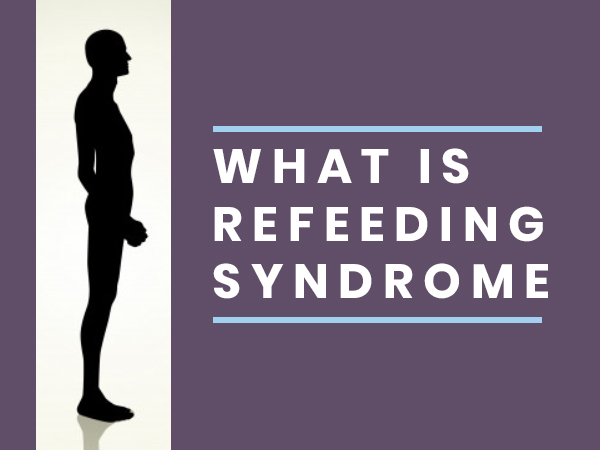Just In
- 2 hrs ago

- 6 hrs ago

- 10 hrs ago

- 11 hrs ago

Don't Miss
- Sports
 FIDE Candidates Tournament: Praggnanandhaa holds Nepomniachtchi for draw, Gukesh beats Abasov, Vidit loses; Player Standings After Round 12
FIDE Candidates Tournament: Praggnanandhaa holds Nepomniachtchi for draw, Gukesh beats Abasov, Vidit loses; Player Standings After Round 12 - Technology
 Garena Free Fire Max Redeem Codes for April 19, 2024: Get Access to the Latest Freebies in the Game
Garena Free Fire Max Redeem Codes for April 19, 2024: Get Access to the Latest Freebies in the Game - News
 Chhattisgarh CM Urges Bastar Residents To Vote In Large Numbers
Chhattisgarh CM Urges Bastar Residents To Vote In Large Numbers - Movies
 Siren HD Leaked Online For Free Download Within Hours Of Its OTT Release
Siren HD Leaked Online For Free Download Within Hours Of Its OTT Release - Finance
 Rs 40/Share Dividend: Small Cap Under Rs 100 To Hit Ex-Date In 4-Days, Gains 74.21% In 1-Week
Rs 40/Share Dividend: Small Cap Under Rs 100 To Hit Ex-Date In 4-Days, Gains 74.21% In 1-Week - Automobiles
 India's Elections Trigger Airfare Surge in Tamil Nadu
India's Elections Trigger Airfare Surge in Tamil Nadu - Education
 Karnataka SSLC Result 2024 Soon, Know How to Check Through Website, SMS and Digilocker
Karnataka SSLC Result 2024 Soon, Know How to Check Through Website, SMS and Digilocker - Travel
Telangana's Waterfall: A Serene Escape Into Nature's Marvels
What Is Refeeding Syndrome? Its Symptoms, Risk Factors And Treatment
A metabolic disorder, refeeding syndrome occurs as a result of the reinstitution of nutrition in people who are malnourished. That is, refeeding syndrome can develop when someone who is malnourished begins to normally eat again.

Refeeding syndrome develops as a result of the reintroduction of glucose, or sugar, which can cause sudden shifts in the balance of electrolytes and fluids. This, in turn, can lead to severe complications, including death [1].

Malnourishment, in this case, does not have to be the result of being without food for a long period, just five successive days of malnourishment can make a person be at risk of refeeding syndrome [2].
Refeeding syndrome can affect anyone and usually follows a period of malnourishment, fasting, extreme dieting, starvation and certain health conditions [3].

What Causes Refeeding Syndrome?
When a person fails to eat the right amount of food, their body can quickly go into starvation mode and become malnourished. And once this continues for a period of five days, the body's ability to process food is severely compromised [4].

As the body becomes malnourished which produces less insulin, it can prevent the production of carbohydrates. When there is an insufficiency of carbohydrates, your body uses fat reserves and stored proteins for energy and this can change the balance of electrolytes.

So when food is reintroduced into your system, there will be a shift from fat metabolism back to carbohydrate metabolism, causing the insulin secretion to increase [5].
Refeeding syndrome can cause hypophosphatemia, a condition caused by a phosphorus deficiency and can also lead to low levels of other important electrolytes, negatively affecting your heart, lungs, kidneys, blood, muscles, digestion and the nervous system [6].

What Are The Symptoms Of Refeeding Syndrome?
Refeeding syndrome can cause sudden and fatal complications and normally develop within four days of the start of the refeeding process. And some of the common symptoms of refeeding syndrome are as follows [7]:
- Inability to breathe
- Fatigue
- Seizures
- Heart arrhythmias
- Confusion
- Heart failure
- Weakness
- High blood pressure
- Coma
- Death, in severe cases
- Excessive urination
- Fatigue
- Weakness
- Heart problems
- Breathing problems, such as respiratory depression
- Ileus, a blockage in the intestines
Refeeding syndrome can also cause potassium levels to drop dangerously low, which can cause the following symptoms [8]:

What Are The Risk Factors For Refeeding Syndrome?
One may be at the risk of developing refeeding syndrome if the have any of the following [9][10]:
- Anorexia nervosa
- Chronic alcohol use disorder
- Cancer
- Uncontrolled diabetes
- Malnourished
- Recently had surgery
- Dysphagia (problem swallowing food)
- History of using antacids or diuretics
- BMI under 16
- Low levels of serum phosphate, potassium, or magnesium in the blood
- Use of certain medications, such as insulin, chemotherapy drugs


What Are The Complications Of Refeeding Syndrome?
Refeeding syndrome can also lead to a lack of magnesium called hypomagnesemia [11]. The symptoms of the condition include the following:
- Weakness
- Fatigue
- Low calcium levels, or hypocalcemia
- Low potassium levels, or hypokalemia
- Nausea
- Vomiting
- Abnormal heart rhythms

How Is Refeeding Syndrome Diagnosed?
The metabolic syndrome can be fatal if not recognised and treated properly. Doctors can identify people at risk for refeeding syndrome, but it is impossible to know whether a person will develop it. Therefore it is important to prevent the syndrome from developing [12].

What Is The Treatment For Refeeding Syndrome?
Research is still needed to determine the best way to treat the refeeding syndrome. Currently, treatment involves replacing essential electrolytes and slowing down the refeeding process [13].

Replacing vitamins, such as thiamine, can also help to treat certain symptoms. Doctors may also slow the refeeding process, to help a person to adjust and recover.

Can Refeeding Syndrome Be Prevented?
As health experts assert, prevention is the most effective way to combat refeeding syndrome. However, underlying health conditions that increase the risk of refeeding syndrome aren't always preventable but the complications can be prevented by identifying individuals who are at risk, adapting refeeding programs accordingly and monitoring treatment [14].

On A Final Note…
The best way to combat refeeding syndrome is to identify and treat at-risk people because they can recover if they receive treatment early. As doctors point out, increasing awareness and using screening programs to identify those at risk of developing refeeding syndrome is necessary.

-
 pregnancy parentingWhite Lung Syndrome: What Are The Symptoms Of The Disease Rampant In China? How Does It Spread?
pregnancy parentingWhite Lung Syndrome: What Are The Symptoms Of The Disease Rampant In China? How Does It Spread? -
 healthWhat Is Traffic Stress Syndrome? Are You At Risk?
healthWhat Is Traffic Stress Syndrome? Are You At Risk? -
 disorders cureWhat Is Jerusalem Syndrome? A Psychosis State That Makes People Hear ‘Voices Of Angels’
disorders cureWhat Is Jerusalem Syndrome? A Psychosis State That Makes People Hear ‘Voices Of Angels’ -
 disorders cureWhat Is Alice in Wonderland Syndrome (AWS)? Causes, Symptoms And Treatment
disorders cureWhat Is Alice in Wonderland Syndrome (AWS)? Causes, Symptoms And Treatment -
 disorders cureRestless Leg Syndrome: Symptoms, Causes, Diagnosis And Treatment
disorders cureRestless Leg Syndrome: Symptoms, Causes, Diagnosis And Treatment -
 disorders cureCompartment Syndrome: Causes, Symptoms, Diagnosis And Treatment
disorders cureCompartment Syndrome: Causes, Symptoms, Diagnosis And Treatment -
 disorders cureGoodpasture Syndrome (GPS): Causes, Symptoms, Diagnosis And Treatment
disorders cureGoodpasture Syndrome (GPS): Causes, Symptoms, Diagnosis And Treatment -
 disorders cureSneddon Syndrome: Causes, Symptoms, Diagnosis & Treatment
disorders cureSneddon Syndrome: Causes, Symptoms, Diagnosis & Treatment -
 babyGrey Baby Syndrome: Causes, Symptoms, Diagnosis and Treatment
babyGrey Baby Syndrome: Causes, Symptoms, Diagnosis and Treatment -
 prenatalTwin-to-twin Transfusion Syndrome - Everything you need to know
prenatalTwin-to-twin Transfusion Syndrome - Everything you need to know -
 kidsAround 7 Per Cent Children In Country Malnourished: Govt
kidsAround 7 Per Cent Children In Country Malnourished: Govt -
 kidsOver 33 Lakh Children In India Malnourished; Maharashtra, Bihar And Gujarat Tops The List
kidsOver 33 Lakh Children In India Malnourished; Maharashtra, Bihar And Gujarat Tops The List


 Click it and Unblock the Notifications
Click it and Unblock the Notifications




